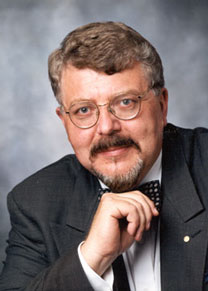DDA tenth anniversary award
DDA tenth anniversary award
|
Dr Sev Ozdowski OAM Sydney, 10 December 2002 |
 |
In addition to this year's Human Rights Awards, to be announced later
today, the Human Rights and Equal Opportunity Commission has decided to
confer an award to mark ten years of achievements under the Disability
Discrimination Act.
There have been many areas of achievement over the last decade in building
a more accessible and equal society that includes people with disabilities.
These achievements include
- Improved telecommunications access for deaf people and other people
with disabilities - Negotiations almost concluded on standards for improved access to
buildings and education - Increased captioning of television programs, with further increases
being negotiated at present - Adoption by the banking industry of standards for disability access
to ATMs, internet banking, EFTPOS and phone banking - Development of voluntary action plans for improved disability access
by hundreds of service providers, particularly local governments - Resolution of thousands of disability discrimination complaints.
In each area of national achievement there are individuals it would
be appropriate to recognise for their contribution, for example:
- Geoffrey Scott for the effect of his complaint in stimulating progress
on telecommunications, or - Dr John Byrne for his work for captioning of cinema and television.
From the many people and many areas of work deserving recognition, the
award has been made to the disability community representatives in the
negotiation of national standards for accessible public transport:
- Angus Downie,
- Maurice Corcoran,
- Margo Hodge and
- Kevin Murfitt.
The accessible public transport standards stand out among other achievements
in implementing the Disabilty Discrimination Act :
- because of the scale of the changes involved, guiding billions of
dollars of investment; - because of the benefits to be gained by the whole community including
people with disabilities; - because of the degree of implementation the standards have already
achieved in practice around Australia; - and because of the positive precedent they have set for achieving
co-operative solutions in other areas of work under the Disability Discrimination
Act.
I must acknowledge that this award could also have gone to many other
people involved in the transport standards process.
This includes people from State and Federal Government, and in particular
John Stott, Pam Langley, and Ken Ryan from NSW Transport who led the drafting
process.
Mention should also be made of people from the transport industry, such
as Barrie McDonald from the Bus Industry Confederation, and John Bowe
from the taxi industry.
I should also note the support which this process has had throughout
from the Attorney-General and his department.
But we wanted to recognise particularly the contribution of community
representatives, who contributed hundreds of hours of work over the past
decade, sometimes at significant financial and personal cost to themselves
in pursuit of the common good.
In addition to his role during the negotiation of the standards, Mr Angus
Downie also wrote the "Target 2015" report for the former Disability
Advisory Council of Australia which provided much of the platform for
development of the standards.
Each of the disability community representatives brought to this process
a commitment to negotiation in good faith, to the widest possible consultation,
and to the sharing of expert knowledge.
It is a great pleasure to be able to recognise their work today.
